Relevant Overviews
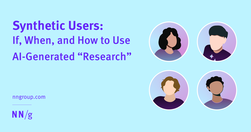
Synthetic users are fake users generated by AI. While there may be a few use cases for them, user research needs real users.
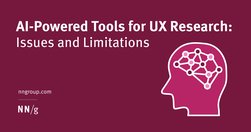
Be skeptical of the marketing claims being made by AI tools designed for UX researchers. Many of these systems are not able to do everything they claim.

Prompt engineering is the process of creating effective prompts for artificial intelligence (AI) systems. A prompt in AI is a specific instruction or input given to an AI system to elicit a desired response or output. Effective prompt engineering results in good communication between the user and the AI system, where the user guides the AI systems
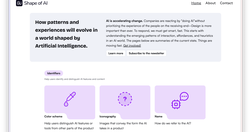
AI is accelerating change. Companies are reacting by “doing AI”without prioritizing the experience of the people on the receiving end–Design is more important than ever. To respond, we must get smart, fast. This starts with understanding the emerging patterns of interaction, affordances, and heuristics in an AI world. The pages below are summaries

The dual prompting approach in AI-driven UX design distinguishes between exploratory and detail-refining phases. Alternating these prompt styles can optimize your UX strategies and harness AI's potential for innovation and precision. Use both zero-shot and few-shot prompting for greater breadth and depth in creative problem-solving.
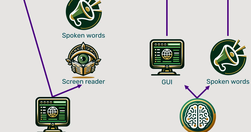
Traditional methods for accessibility have been tried for 30 years without substantially improving computer usability for disabled users. It’s time for a change, and AI will soon come to the rescue with the ability to generate a different user interface for every user, optimized for that person’s unique needs.
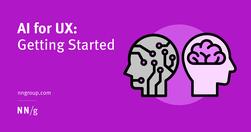
Use generative-AI tools to support and enhance your UX skills — not to replace them. Start with small UX tasks and watch out for hallucinations and bad advice. All UX professionals should use AI: it’s helpful at any level of seniority and for many tasks within the UX lifecycle (including research, design, and writing).

Chat GPT to brainstorm ideas, write document outlines, compose tweets, make my emails friendlier, and much more. Recently, I even used it to suggest a possible information architecture based on the site content I provided.